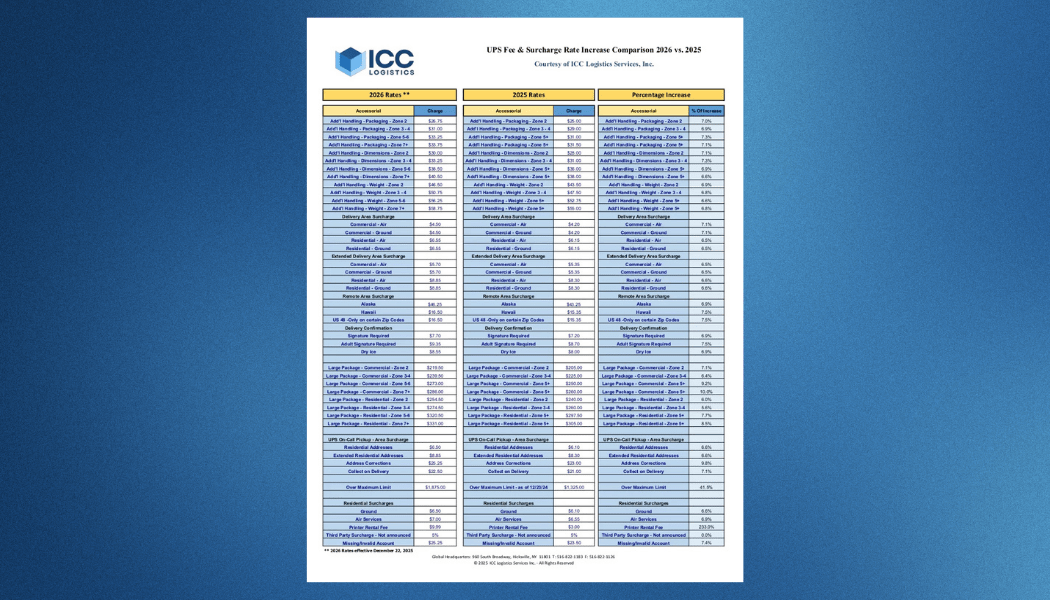As reported by Logistics Management News, no labor agreement between the International Longshore and Warehouse Union (ILWU) and the Pacific Maritime Association (PMA) has yet been reached. However the good news is, both sides are still talking.
The ILWU represents port workers in California, Oregon, and Washington, with more than 30% of U.S. incoming container traffic moving through West Coast ports at the Ports of Los Angeles and Long Beach. The PMA represents shipping lines and terminal operators at 29 West Coast ports, and the contract, which expired on July 1, represents more than 22,000 dockworkers at all 30 U.S. West Coast ports.
It wasn’t long ago that shippers were really concerned that a West Coast Dock Strike would cripple supply chains right before Peak Season, so that fact that both sides are still talking is being taken as good news, at least for now.
In a joint statement, both sides stated that “Talks are continuing on an ongoing basis until an agreement is reached,” and they “remain hopeful of reaching a deal soon.”
Going back to the middle of 2022, West Coast ports lost market share, due to the uncertainty of the timing of a new deal being reached, to East Coast and Gulf Coast ports, with shippers not wanting to have labor issues impact cargo flows. These East Coast and Gulf Coast ports we believe will continue to receive higher volumes as shippers are wary of putting all, their eggs in one basket.
Port of Los Angeles Executive Director, Seroka said on a recent media conference call that the PMA and ILWU have made it clear they remain committed to getting a deal done and will not go on strike. And he commended President Biden for being the first president to visit with both sides and their top negotiators last June on the USS Iowa, encouraging the parties to stay at the bargaining table and work through their issues. He also credited the U.S. Department of Labor for its efforts to develop strong business relationships with both parties. How long this love affair with the Federal Government continues remains questionable; just ask the folks living in East Palestine, OH.
Executive Director Seroka went on to state, “We have not seen any change in productivity. “The rank and file that go out there every day…are on the job, moving all of the cargo they can through the port. That message needs to continue to get out as the ground truth to importers and exporters across the country. Yet, there still is trepidation. There are many transportation managers that could not go back to their boss for a third straight year and say ‘I got our cargo stuck in the jaws of congestion out in California.’ Maybe history will say there was some overcorrection here. The combination of that and the handwringing about the economy has got us turned a little bit sideways when it comes to the supply chain. We have got to get this collective bargaining agreement done…and focus on what we can do to deliver value.”
Seroka also explained that both the PMA and ILWU are keenly aware about West Coast cargo erosion to East Coast and Gulf Coast ports, with both parties wanting to work with West Coast ports to earn the lost volumes back and move forward with organic market growth.
“Collective bargaining is hard work,” he said. “Not only do we need a coastal framework but there are also 29 local agreements up and down the West Coast. And, by and large, these two sides have not negotiated in-depth for about a year. That work has to be done for the generation that is on the docks today and for the next generation of workers. Companies have to have certainty so they come back and invest and continue to drive business through this gateway. This deal may not be done in February or March, but I am confident we will see some real progress in the springtime. We don’t want to give anyone excuses to contract for cargo moving in other geographies or other ports. We have got to give confidence to these negotiators at the table to get the job done the right way.”
In late July, PMA and ILWU said they came to terms on a tentative agreement on terms for health benefits, adding that the tentative agreement is subject to agreement on the other issues in the negotiations.
“The parties have agreed not to discuss the terms of this tentative agreement as negotiations continue,” said ILWU and PMA officials in a statement. “Maintenance of health benefits (MOB) is an important part of the contract being negotiated between employers represented by the PMA and workers represented by the ILWU.”
This is not the first time a contract discussions between the organizations have continued beyond the end of an existing contract. One does not have to go too far back to see how acrimonious negotiations were, as in 2015, in the months prior to the June 30 deadline, it required the U.S. Federal Mediation and Conciliation Service to step in to help the sides find a way to come to an agreement over stalled labor negotiations. What’s more, the ongoing tension between the parties subsequently resulted in hindered productivity and also was a contributing factor in port congestion on the West Coast, especially as it led up to the 2016 holiday season.
The PMA said, at the time, that the state of terminal productivity at the five largest West Coast ports was approaching gridlock, due in large part to what it labeled ILWU-staged shutdowns. That Sabre Rattling is not really present at these negotiations and that is surely a good thing for all parties concerned.
So, we can’t help but ask, with UPS and the Teamsters continuing their initial dialogue on a new five year contract, will the Teamsters Union agree to extend their negotiations beyond the contract expiration date of July, 31, 2023 in order to reach an agreement, or will they do what they have been threatening to do and walk off the job on July 31st? Only time will tell. Reach out to us if you need more information. We’re happy to share what we know with our clients and friends.



 to receive our FREE white papers:
to receive our FREE white papers: